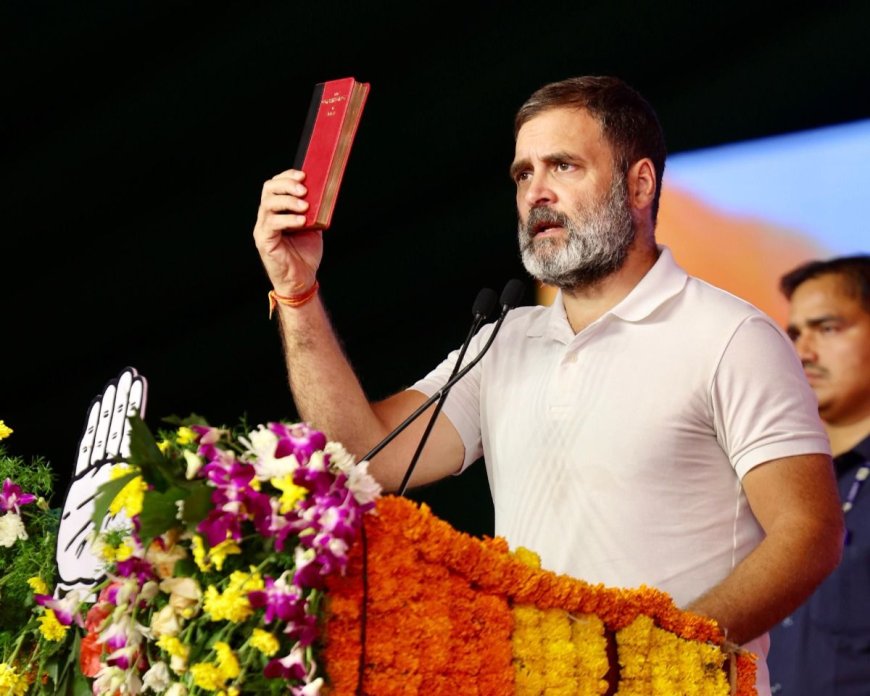Rahul Gandhi's Fraud Claims Crumble in Election Integrity
Rahul Gandhi's fraud claims collapse as election integrity stands firm, sparking debate on democracy, transparency, and political accountability.

Introduction
Indian politics has always been a stage of heated debates, allegations, and counter-allegations. Among the most recent controversies is Rahul Gandhi’s claim regarding electoral fraud, which has now been widely questioned and, as some argue, crumbled under closer scrutiny. Election integrity is a cornerstone of democracy, and any claims that shake public trust in this system naturally spark widespread discussion.
Historical Context
India’s electoral system is one of the largest democratic exercises in the world. Over the years, allegations of tampering, misuse of power, and voter influence have surfaced from multiple parties. Rahul Gandhi, a prominent face of the Congress Party, has often raised concerns about fairness in elections, with his latest accusations centering around fraud in electoral processes. However, with strong pushback from the Election Commission and other stakeholders, these claims have been challenged, raising questions about their credibility.
What Were Rahul Gandhi’s Fraud Claims?
Rahul Gandhi alleged that India’s electoral machinery is compromised, claiming irregularities in electronic voting machines (EVMs) and bias in the system that favors ruling parties. According to him, this raised doubts about the transparency and fairness of democratic elections. However, several official bodies, including the Election Commission of India, dismissed these allegations, labeling them unfounded and unsupported by concrete evidence.
Why Did These Claims Crumble?
The claims began losing weight due to:
Lack of Evidence – No tangible proof was presented to back up allegations of large-scale fraud.
Strong Institutional Defense – The Election Commission and independent observers reaffirmed the robustness of India’s electoral system.
Public and Media Scrutiny – Fact-checking and investigative journalism exposed inconsistencies in the accusations.
Political Backlash – Opponents argued that such claims were politically motivated rather than fact-based.
Key Points to Consider
-
India’s EVM system has been repeatedly tested and verified for accuracy.
-
Multiple stakeholders, including foreign observers in some elections, have found no systemic fraud.
-
Allegations without proof may erode public trust in democracy rather than strengthen it.
-
Electoral reforms are an ongoing process, but baseless claims can undermine progress.
Significance and Factors
The issue highlights the delicate balance between raising legitimate concerns and spreading distrust. While questioning systems is necessary for transparency, unverified claims risk delegitimizing democratic institutions. This debate also reflects the increasing polarization in Indian politics, where allegations often serve as political strategies rather than factual discourse.
Advantages and Disadvantages of Such Claims
-
Advantages:
-
Keeps electoral institutions accountable.
-
Sparks public debate about election reforms.
-
Encourages transparency in governance.
-
-
Disadvantages:
-
Undermines public trust in democracy without evidence.
-
Diverts focus from real issues such as voter accessibility and fair campaigning.
-
Creates political instability and confusion among citizens.
-
Positives and Negatives
-
Positives: Promotes vigilance, ensures institutions remain under scrutiny, and encourages citizens to demand accountability.
-
Negatives: Can damage India’s global image as a stable democracy, spread misinformation, and weaken confidence in governance.
Final Thoughts and Conclusion
Rahul Gandhi’s claims of electoral fraud may have ignited debate, but without credible evidence, they have largely collapsed under scrutiny. Election integrity is not just about political statements; it requires data, transparency, and trust in institutions. While India must continue to improve its electoral framework—ensuring accessibility, fairness, and inclusivity—reckless allegations risk weakening democracy rather than strengthening it. Ultimately, the strength of India’s democracy lies in both the robustness of its institutions and the responsibility of its leaders to engage with facts rather than unfounded claims

 Ellofacts
Ellofacts 





